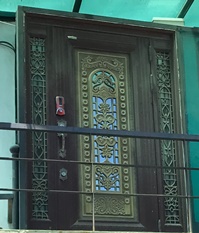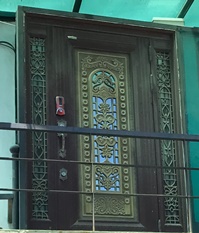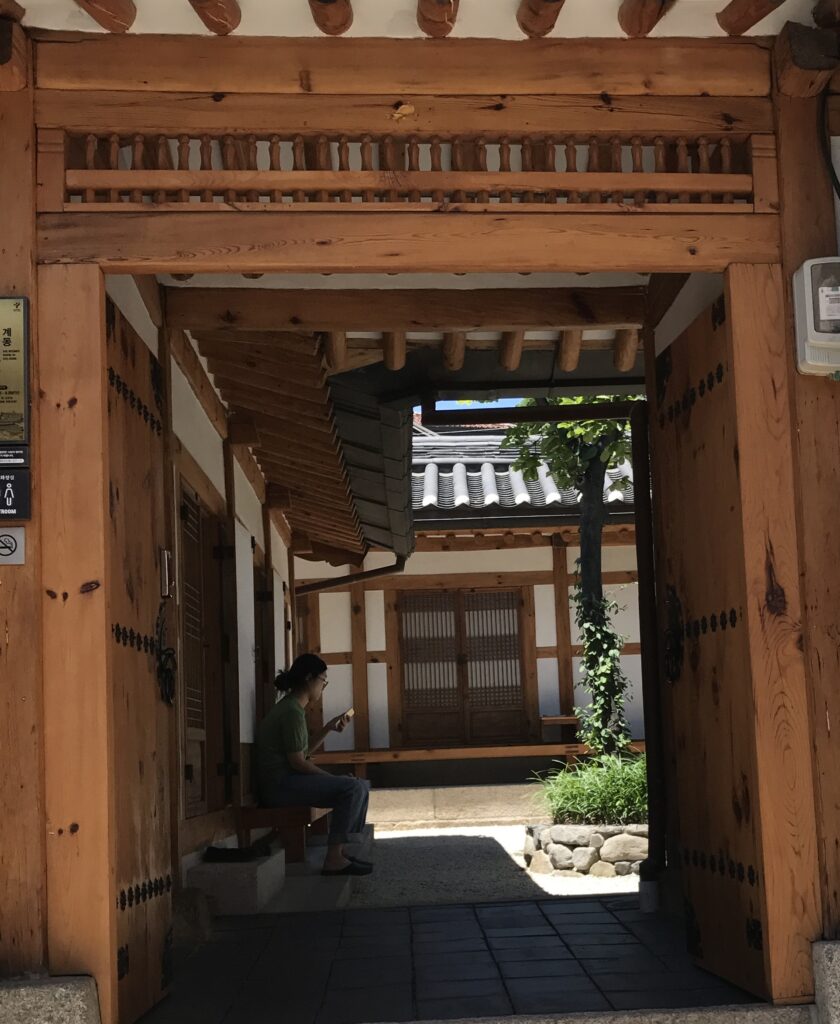These stories are at least ten years old. But I still find them interesting. Like most of my other stories, these are about NRI’s, and their families.
Family Feud – The Headmaster and the Coffeemaker
This story was written during prehistoric times- like 2010!-there were no smartphones in India, fast internet connections were available on Cable only, wireless routers were very expensive and people were worried about others stealing their bandwidth. The story is still funny, but things have certainly changed a lot!
I don’t generally like people working in computer-related fields. I mean – look, a nerd who stares at endless pages of meaningless codes all day long, or tries to develop a flashier version of a stupid handheld gadget – and makes more money than the rest of us!
Can you detect a little envy on my part? Hehehe!
But I loved Ashok the geek. A very neat young man, very hard-working I Still single, but family oriented, he often talked about his big brother, Bhimdeb Mukherjee, recently promoted to be the Headmaster of a local school and his lovely niece Pinky.
Ashok loves Coffee . He spends hours stooped in front of his computer with a steaming hot cup of gourmet brew from his very own pricey machine he bought at Chicago. Hey, the kid don’t have any vices and makes a lot of dough.
After a gap of five years, he went back to Kolkata for his life-changing trip in 2008, much delighted by the coffeemaker he ordered from an Indian website, to be delivered to his ancestral home in Behala, just before he arrived.
Things have certainly changed in India, he noticed , especially in his own house. Bhim, since getting his promotion, rules his school and his house both with an iron fist. The Head Sir, as students call him, has grown a formidable moustache and a paunch.
The shiny coffeemaker has been unpacked, sitting on the kitchen counter.
“Boudi will make coffee for you tomorrow” Bhim told him as Ashok went to bed.
Eager for caffeine, he joined the family bright and early in the living room.
“Dada likes tea in the morning” Bhabi informed him.
Tea came, with toast and jam.
Ashok was pining for his first cup of Java. His throat felt dry, his eyelids twitched even as he drank the muddy and sweet concoction.
The Head Sir gave him a short lecture on the sad state of the Marxist government in Bengal.
A second round of tea followed by Samosas arrived. Still no coffee.
“I am making pinky’s breakfast, she will go to school soon.”Bhabi announced
Pinky ate for about forty-five minutes, with continuous coaxing from her parents. Even at nine years old, she is a fussy eater.
Around 9 am , Ashok peeked in the kitchen.
“Can I make some coffee myself, Boudi?
Bhabi was not amused.
“What’s the big rush? I will make it for you when I get some free time. Please sit down and enjoy yourself. Dada wants to chat with you”
Soon after, Boudi went to take a shower. Ashok peeked in the kitchen again.
OMG, the coffeemaker, the spice blender and all other kitchen equipment were securely locked in the kitchen cabinet. (Later on his mom told him that this is done whenever bhabi leaves the kitchen, fearing the housemaid would run away with the kitchen appliances- Head Sir’s orders, obviously!).
Around 10-30 am Ashok gave up on coffee.
He enquired about using the internet.
“The computer is in our bedroom” The Head sir said. “ You can not use it during the daytime, Bhabi needs her privacy. Eight pm in the evening is the scheduled computer time.”
At eight pm in the evening, the whole family marched to the bedroom. First Bhim checked his e-mail. Pinky played with the computer for fifteen minutes. Bhabi read some blogs. Ashok got his turn around 8:45. By 9:15, Bhim came back to the bedroom.
“We will be getting ready for bed now,” he said politely.
Pretty much the same routine repeated itself the next morning. Hungry for Java and the internet, Ashok picked up his laptop and headed for the local internet thek.
A paranoid old spinster was running the internet joint in the late morning hours. There were mostly teens hanging around, playing video games or chatting passionately with their internet “boyfriends” or “girlfriends” that they have never seen in their lives.
She frowned as he entered and asked for his ID.
Ashok showed her his US passport, he became an American citizen five years ago.
The spinster looked at him and said “This is your American passport. I need your Indian passport or PAN card.”
“I don’t have an Indian passport, Miss, sorry!” Ashok said
She insisted that since Ashok is speaking Bangla, he must show his Indian passport.
“US passports are acceptable only from real Americans, not from you” She wryly informed Ashok.
The teenagers snickered in the background.
Ashok stepped out, muttering some very bad words under his breath.
A desperate Ashok then took a taxi to Park Street and found a nice coffee shop with WI-Fi and got some work done finally, with some excellent Java to go with it. It took three hours roundtrip to go to Park Street, even in a taxi, and the taxifare, three cups of gourmet coffee , snacks and internet charges ran to a hefty 2000 rupees. Even with American dollars, this is pretty steep for one day, Ashok thought. Damn it, why does he need to spend so much money?
Three days later, the gleaming coffeemaker, still a virgin, sat quietly in the kitchen cabinet.
Ashok called a family meeting in the evening. The Head Sir was annoyed. Supposedly, he was the only one who can call a meeting.
“Dada, why can’t I use the internet during the day/” Ashok asked.
The Head Sir was even more annoyed “I already told you, that’s in Boudi’s room. Our computer time is 8 pm.”
“Why can’t you install a wireless router, so I can hook up my laptop anywhere? I can go get one right now.”
“Ekdom noi” The Head Sir was getting mad “ our neighbors would hack in and steal our bandwidth”
“Can we all have some coffee now? I am getting tired of waiting for coffee” Ashok asked.
“Chee chee, you can’t have coffee in the evening!! Matha Ghure jaabe! (You will get dizzy!)
“This is my Coffeemaker.” Ashok exploded in rage, finally. “I bought it with my own money, I will make coffee whenever I want, wherever I want, as many times as I need. Don’t tell me about your stupid family rules. I don’t depend on your money or your father’s money, you idiot!
Invoking one’s father in the conversation (Baap tola in Bangla) and calling one’s dada an idiot – all in one sentence – the Head Sir’s mouth fell open at the enormity of this insult.
He remained quiet for a moment, his face getting beet red. Slowly, the respectable head sir’s nostrils flared up, and a little vein on his forehead started throbbing. His eyes popping up, the head sir finally exclaimed, with uncharacteristic profanity
““Eto boro Katha! Get out from my house right now, you baanchot!”
(I am not translating this!)
Ashok retaliated, in English, hoping his mom would not understand, “I have had it with you, fatso! This is not your freaking house, it is my father’s. You just live here with your fat ass and small prick. Next time you ask me for money for house repair, or a new cell phone from America, I will shove it right through like an express train.”
At this, mom and Bhabi gasped and started crying quietly. Bhim sat there speechless, shaking with anger, the little vein throbbing on his forehead. Not waiting for a response, Ashok stormed out of his ancestral house.
This was the beginning of a deep and long-lasting rift in the illustrious Mukherjee family. Three years later , Ashok is still banished from the Behala House.
The siblings are on a mission . To get a little flavor of their incendiary interaction, please browse through their recent e-mail exchanges:
To Bhim@gmail.com
Re: My new car
Dear Big Brother:
I was saving a lot of money so that Pinky, your semi-retarded daughter, can go to a decent college in America. Guess what, I changed my mind, and used the money to buy a nice car. I am sending a pic of my brand new BMW. Enjoy!
I am having fun visualizing Pinky swinging her ponytail on her way to our famous Behala College in a few short years.
Best wishes
Ashok
To: AshokM@yahoo.com
Re Shaadi enquiry
Dear Ashok:
Remember our neighbor’s daughter Kalpana? She has recently finished law school and joined the Bar at Kolkata High Court. I must say she has turned out to be a lovely young woman. Her parents were asking about you. It appears that Kalpana had a crush on you when she was a little girl.
I told them you prefer to be constantly surrounded by immoral American women (hooker is the right word for them , I believe) and you are not interested in getting married right now. If you change your mind, let me know.
Best wishes
Bhim
To : Bhim@gmail.com
Re: FYI
Dear Big brother:
I am planning to bring mother over here for a visit , from April to June next year.
Ashok
To: AshokM@yahoo.com
RE: FYI – problem
Dear little brother:
I am glad that you are planning to bring ma to America. There is one problem – how is she going to get from Behala to Kolkata airport? She has no money of her own. We give her everything she needs. But we are certainly not going to provide taxi fare for her trip to America.
Best Wishes
Bhim
To: Bhim@gmail.com
Re: Taxi fare – no problem
Dear Dada:
I will send you a check for the taxi fare.
Ashok
To AshokM@yahoo.com
Re : Yes Problem
Dear Ashok:
Sorry we do not accept your dirty American money.
Best wishes
Bhim
Are they ever going to reconcile and immerse themselves in brotherly love?
I wonder!!
As we all know, Java-addiction is a grave danger to your mental health!
ABCD – a Vanishing Breed!
The ABCD phenomenon started in the 70’s and kind of petered out by the early years of 2000.
ABCD: American born Confused Desi
We don’t see True ABCD’s anymore. While someone could apply for a research grant to delve into the causes of their apparent disappearance, I will refrain from speculation in this regard.
In the 80’s and 90’s, America was teeming with ABCD’s. Indeed, that was the golden age of ABCD’s
Some Desi’s loved them.
“See, they are the true descendants of Mother India”, they would point to a nerdy 25-year old accountant touching the feet of some old geezer in a Hindu temple. “What cultural awareness! What spontaneous show of respect! And he was born and brought up right here in America. Bravo betha, bravo!
Most of us that hardly go to the temples and such would hear about this young man and wonder about his true status.
Skeptics like me would follow him around for days, finding him on a Saturday morning in a Bhagwat-Gita reading class, trying to hit on the priest’s toothy teenage daughter.
The same Saturday evening, he would furtively drive fifty miles to a topless bar in another town, drinking coke there, not beer, because mom would smell alcohol on his breath and disapprove. He would ogle at the strippers but decline any lap dances because that would cost too much money.
Now the skeptic would smile broadly – that’s an aasli ABCD – a true specimen right there!
Alright, alright, I just made that one up. I never actually met such an accountant, he was merely the prototype. But some others that I did meet definitely qualified for a true ABCD status.
ABCDs in love
Imran is the first one that comes to mind. He went to the college where I teach, had a serious American girlfriend, but broke up with her because his parents would not approve of her.
Next, he went on a nationwide mate search through classified ads, matchmaking agencies and such. (hey, there was no TINDER in mid nineties!)
As luck would have it, he hooked up with Asha, a Bengali girl in Dallas. The lovebirds cooed over long distance phone calls for a while. His parents grudgingly agreed to a match with a hindu girl, while her parents viciously objected to a muslim boy, so Imran went to Dallas where they eloped and started living together.
Pretty normal stuff up to here, but it gets weird after this.
Imran called me two weeks after he eloped.
“Things are very weird, Pronto”
“Really?”
“We found a nice apartment, and I wanted to get married right away. But Asha says we should get married only after both of us find good jobs, so that we are financially secure”
“Have you found a job yet?”
“I found a job as a bank teller, pays the bills for now, but it will take a while before I get a real job. Asha is still looking, but not very seriously.”
“A little strange, yes.” I said
“But listen, meanwhile, our relationship is purely platonic, Asha wants to wait until we actually get married. She said she loves me more than anything else, though! Tell me, what should I do?”
“Hmmmm.. .., run away, scram!” I said “This is not gonna work”.
Obviously, Imran could not abandon the love of his life. Two weeks later, Asha’s parents found out where she lived. They came to visit, and Asha’s mom started sobbing
“Come back home, little girl!” she kept on crying.
A teary Asha went back home.
Incredibly, the fiasco continued for the next six months.
Asha continued writing long passionate letters to Imran about how much she loves him and how she is gonna leave her parents soon to be with him.
Imran kind of went crazy. His parents finally sent him home to Hyderabad , their home town, for recuperation and a forced negotiated marriage. I have no idea what happened to Asha.
ABCD N
Sita’s parents came from Medinpur, a rural district in West Bengal, way back late 1950’s and settled in Chicago. Sita lived in Chicago since she was born. An old-fashioned negotiated marriage hooked her up with my friend’s brother, Chhote, who migrated from India in late seventies. I first went to visit them in the late eighties, five years after they were married. An hour after I arrived, I took Chhote aside
“Hey, why is Sita speaking like that? She was born here, wasn’t she?”
“You mean the thick Bengali Accent? Her parents taught her to speak with all Indians like that. It’s a sign of respect, apparently.”
“You are kidding me, right? Heck, she’s got this perfect. She even said deenar taybool back there. Wow! Did you ever tell her that some people may actually be offended?
Chhote smiled, “like a hundred times.”
When we went back inside, she was talking to her colleague on the phone, a school teacher, in impeccable American English.
It was early evening. Soon, she showered, put on a clean sari and sequestered herself in the puja room for the next three hours
Chhote shrugged. “She does puja every evening for three hours, very religious you know”.
We had a late dinner, and she excused herself immediately. She was a very conscientious teacher in the Chicago public schools, worked till late at night preparing lesson plans and such.
“What about weekends? Do you get to spend any time with her?
Chhote shrugged again. He was shrugging a lot.
“Yes, every Saturday, we drive out of town, to find a new temple, or a new Hare Krishna group, or some other religious gathering. The whole day is spent on prayers, bhajans and such. The praasad that I eat is usually pretty good though. And Sundays, she has special puja followed by lesson plans, homework-grading and all that.
“And she is only thirty years old! Well, at least you are eating well every Saturday. ” I said
Chhote laughed. He had a lot of patience.
For two days I listened to Sita speaking to me in the most comical Bengali accent . I left very baffled, to say the least.
Now, apart from professional and religious pursuits, young married couples also engage in some other pleasant activities! I never dared ask Chhote and Sita about this part of their married life.
Their childless marriage ended in a divorce after ten years. Like I said, Chhote had a lot of patience.
Well, these are the true ABCD’s. I met many others over the years as well.
Nowadays, grown up children of immigrants rib each other about being ABCD’s , but they all appear to be surprisingly well-adjusted. The real ABCd’s are in their late forties to mid fifties. However, should your profile fit the prototype of the accountant above, shoot me an e-mail.
I will first post a retraction of this blog, and then meet you in a bar where you prefer to drink coke.
I will buy you a coke and will gladly pay for a dance or two as well!







